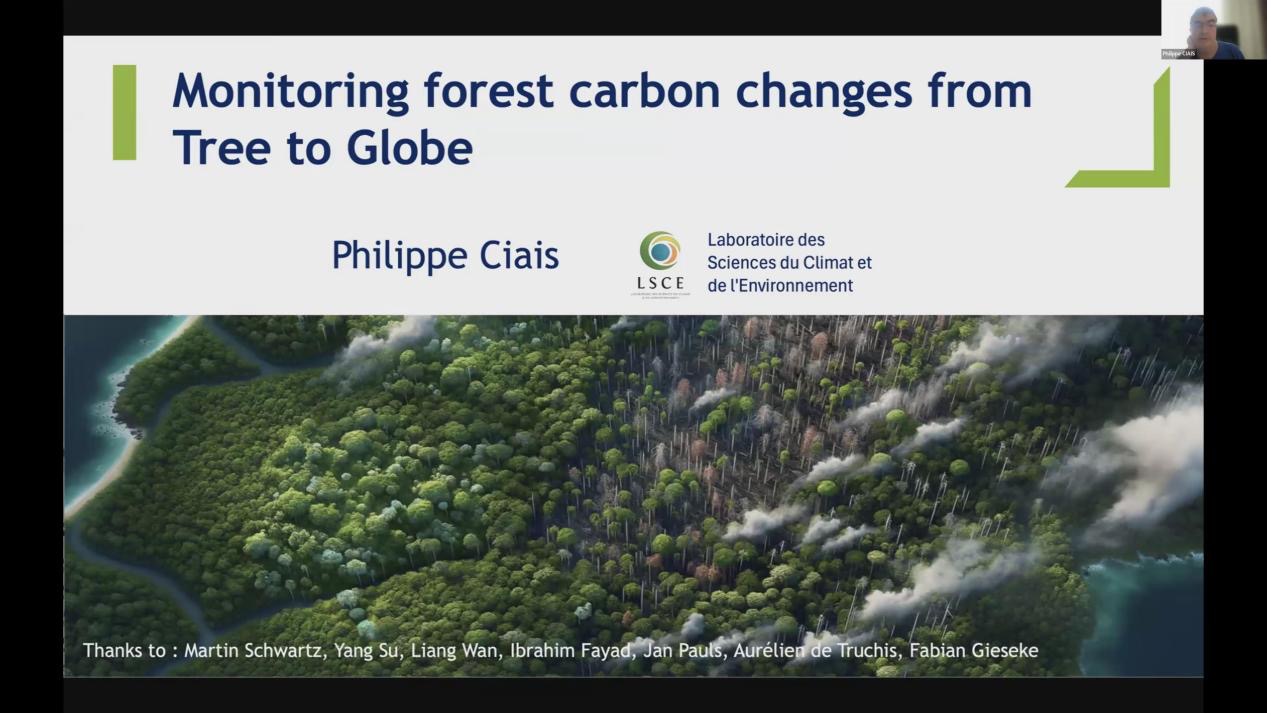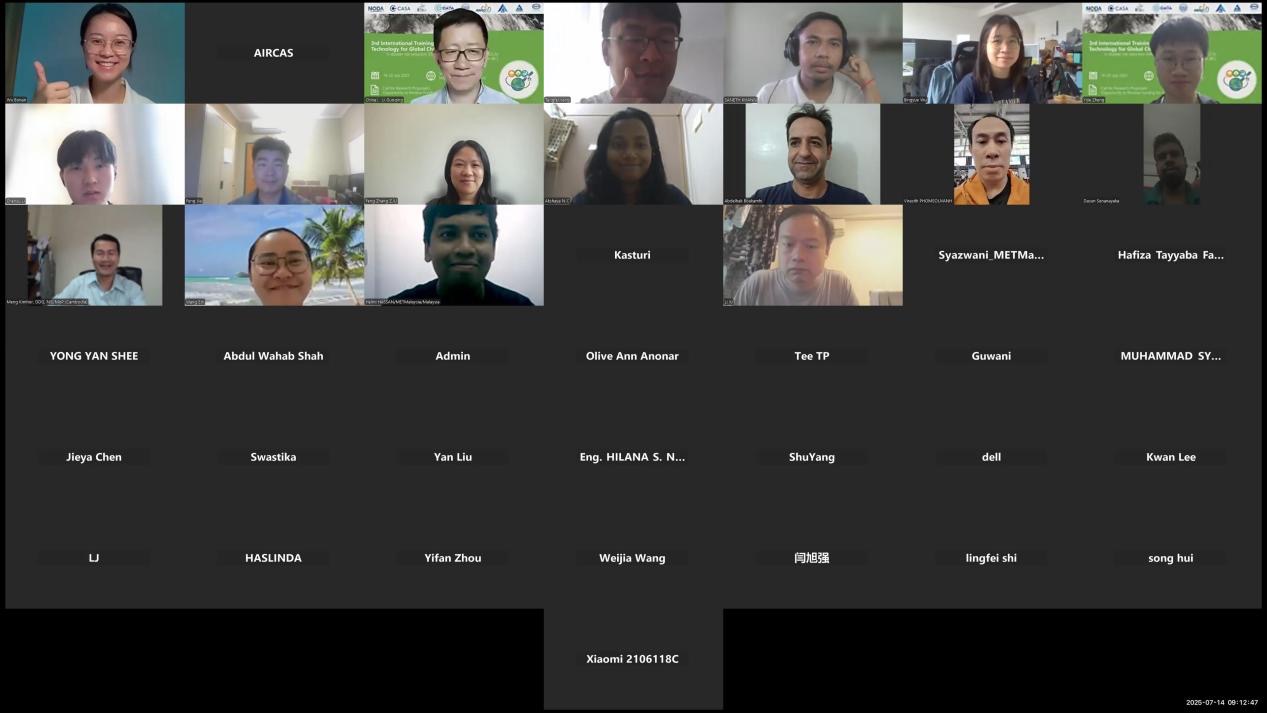AIR,NODA Hold International Training Workshop on Space Technology for Global Challenges
The Aerospace Information Research Institute (AIR) of the Chinese Academy of Sciences (CAS), in collaboration with the National Earth Observation Data Center (NODA), successfully held the Third International Training Workshop on Space Technology for Global Challenges (STGC) from July 14 to 20, 2025.
Held online, the workshop aimed to promote the global use of satellite data—particularly among space agencies and research institutions in developing countries—and to equip researchers worldwide with cutting-edge space technologies to address pressing challenges such as climate change adaptation, disaster risk reduction, and biodiversity conservation. This year's event attracted 514 participants from 64 countries and regions, including India, Pakistan, Bangladesh, Malaysia, Nepal, Kazakhstan, Nigeria, Ethiopia, Morocco, Canada, and Brazil.
The opening ceremony was chaired by Prof. LI Guoqing, Director of NODA. Over the course of seven days, 18 distinguished experts from leading institutions around the world delivered a series of lectures and hands-on training sessions. These institutions included the Chinese Academy of Sciences, Tsinghua University, Wuhan University, Zhejiang University, Nanjing University, Guangzhou University, the Laboratoire des Sciences du Climat et de l'Environnement in France, RIKEN in Japan, GEOMAR Helmholtz Centre for Ocean Research Kiel in Germany, Stanford University in the United States, Universiti Teknologi Malaysia, the Second Institute of Oceanography in China, and PIESAT.
The workshop provided an in-depth exploration of several critical topics, including global disaster response and damage assessment technologies, remote sensing for vegetation disease and pest monitoring, space-based marine wildlife observation, global carbon emission reduction policies and progress, atmospheric CO₂ concentration and surface flux assimilation, and Earth observation technologies for sustainable development in the Asia-Pacific region.
A major highlight of the event was a special lecture by Prof. Philippe Ciais, a Foreign Academician of the Chinese Academy of Sciences, a Member of the French Academy of Sciences, and a contributing author to the IPCC's Fourth Assessment Report. His presentation, Monitoring Forest Carbon Changes from Tree to Globe, provided a comprehensive overview of forest resource and carbon sink monitoring at multiple spatial scales. The lecture was met with enthusiastic praise from participants for its clarity, depth, and relevance.
The workshop received strong support from several international and regional organizations, including CODATA, the Cooperation on the Analysis of Carbon Satellites Data (CASA), the Collaborative Network of Disaster Data Response (CDDR), the Asia-Oceania Group on Earth Observations (AOGEO), the National Satellite Meteorological Centre (NSMC), the Alliance of International Science Organizations (ANSO), the Regional Centre for Space Science and Technology Education in Asia and the Pacific (RCSSTEAP), and the IEEE GRSS Beijing Student Chapter.
Looking ahead, NODA remains committed to advancing global collaboration through academic exchanges, thematic workshops, and joint research forums. The center will continue to serve as a vital platform for promoting the application of space technologies and contributing to the achievement of the United Nations Sustainable Development Goals (SDGs) worldwide.

Prof. Philippe Ciais at the workshop. (Image by AIR)

Snapshot of the online workshop. (Image by AIR)



News & Events